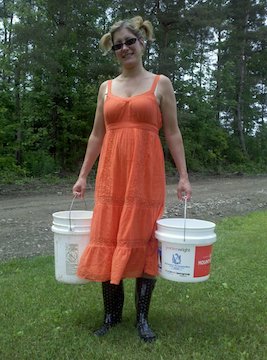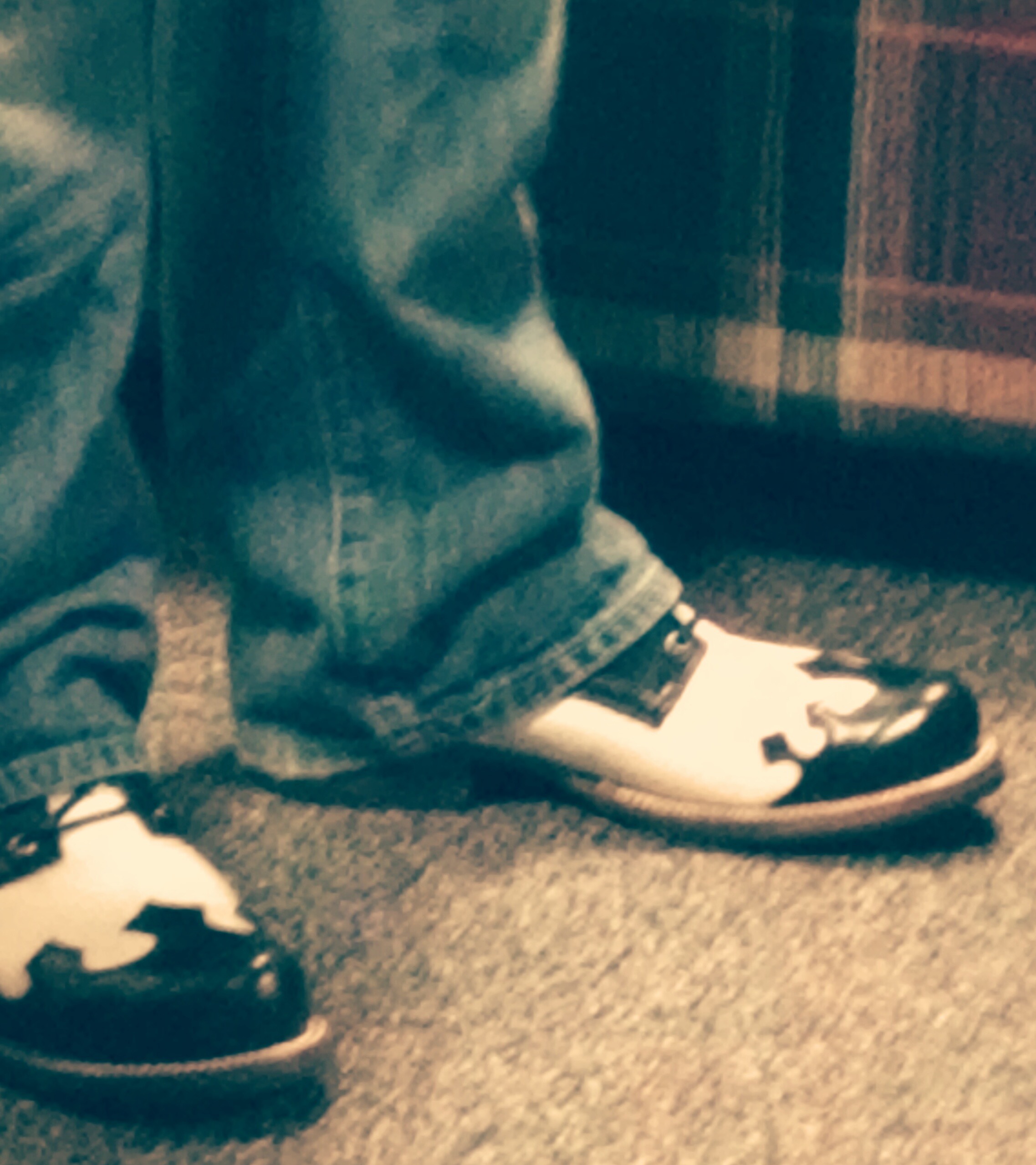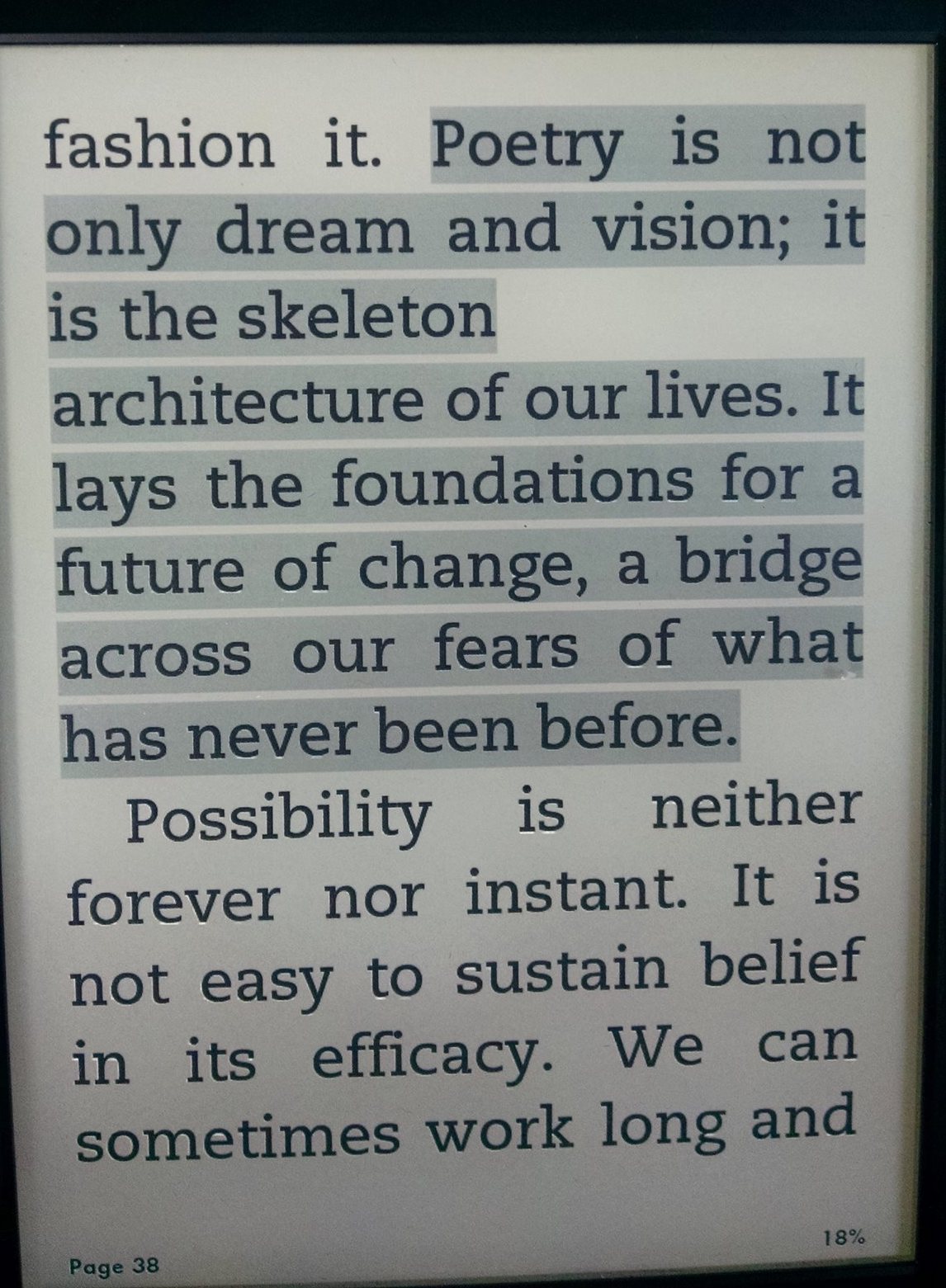In Which I Write Badly About my Introduction to Poetry

SETTING: third floor of the English Annex, West Virginia Wesleyan College. A small office overflowing squeezed piled high with [insert word here to convey that there were more things than space] books, a desk and chair, and a large, comfortable couch. Dust motes twinkling in front of a large window.
Wait, dust motes don’t twinkle, exactly. Nor do they dance. They sort of hang in the air, maybe moving in a downward trajectory due to the gravitational pull. But they don’t hang really, because air currents disturb them, but not like in a tornado fashion, but more of a haphazard fashion. Haphazard. Good word, let’s go with that.
Dust motes drifted haphazardly in front of a sunny window.
No. Windows aren’t sunny in and of themselves. They allow sunlight to enter. Is dust motes drifted too cutely alliter-ific?
Sigh.
OK. There were books and a comfy sofa squeezed into a room too small to contain them. And there was a large window and dust, but good, scholarly dust, as opposed to animal-dander or otherwise undesirable dust. And it was the end of July [or maybe the middle—look up date later] and it was hot, really hot, and I don’t believe there was air conditioning. The room smelled deliciously of old wood and paper, books and sunlight.
I wore an orangish-coral colored sun dress, because it was not too sexy and not too fancy and orange was my favorite color and most importantly I already owned it. Also, it had wide straps which were supposed to allow me to wear a regular bra but unfortunately the bra I packed was not the right cut to allow me to wear it without it showing in the back, but Thank God I had a “just in case” strapless bra which mostly stayed up. I didn’t realize the school colors were orange and black until the librarian on the school tour complimented me on wearing school colors. Which made me feel like a colossal dork and a suck-up.
This is the orange-ish corally dress in question, though I did not wear it with rain boots or pigtails on that particular day:

I tried very hard not tug at my strapless bra as I sat on the couch in that office for my interview, because although the room had all the scholarly ambiance expected of a graduate school it was also on the third floor and (as I mentioned) it was particularly hot out and I was also nervous which resulted in the kind of sweat that did not cause my bra to adhere to my skin as I had hoped, but instead morphed my torso into some sort of brasserie slip-n-slide.
Eric Waggoner (Creative Nonfiction) and Doug Van Gundy (Poetry) had graciously come in on their week off to meet with me, because although I had googled the faculty and the driving distance from home (four hours) as well as the tuition, I had not actually looked at the school calendar and didn’t realize the MFA 10-day residency had just ended the week before. As I had never attended a 10-day residency I did not yet appreciate how exhausted they were and how gracious it was of them to come in to meet with me. Instead I sat next to this hospitable poetry professor (Dr. Waggoner had commandeered the only chair) on this smooshy couch and told him that I hated poetry because I am very suave and debonair like that.
Note to self: debonair is a synonym for suave and “suave and debonair” is therefore redundant. Also over-used. Find better word later.
Doug Van Gundy (I always think of him as a first and last name combination. Doesn’t sound right to use only one half of his name.) was not only polite but also charming and explained that many people think that they hate poetry but that still find the multi-genre seminars to be of value. But he said it with a sincerity I am not conveying adequately. I truly believe that although he may have been laughing on the inside, he was not actually contemplating pushing me out the third floor window which would have been completely justified. That man is a saint I tell you. He also has really cool shoes:

Bonus links: Read some of Doug Van Gundy’s work here, and here, or buy his book Life Under Water here. He is also co-editor of an anthology of fiction and poetry called, Eyes Glowing at the Edge of the Woods, which can be purchased here.
When I started the residency, I made a friend named Rachel. We both were anxious new students who ran by the same internal clock that required us to be awkwardly too early for everything, and thus kept running into each other. When we shared a car to the welcoming dinner (shared a car sounds so urbane, but really we were smooshed into the backseat of a tiny vehicle driven by the student coordinator/liason/someone official but still young) and I believe I told Rachel, too, that I hated poetry, to which she replied that she was a poetry major. After that I shut up about my feelings on poetry.
What I was astonished to learn during my MFA experience was that the poetry seminars were always my favorite. The precision of language, the distillation of time into one perfect moment was exactly what I longed to do in my creative nonfiction. (And still can’t, as you see by my internal thought insertions and overly-wordiness.)
Poetry wasn’t just vague lyrical phrases that made me feel confused. Instead, writers like Adrienne Rich and Patricia Smith revealed glimpses of humanity—glimpses of humanity? Really? Over-wrought and grandiose, fix later—that excited my brain and actually quickened my pulse.
Yes, of course the world needs poetry, but on a smaller scale, I need poetry. I need it as a writer and I need it as a human. And to all the poets who I dismissed with a condescending, “I hate poetry,” I apologize. I didn’t know it could be gritty or irreverent or funny as well as heart breakingly beautiful. And yet, I still do not have the skills to write about it eloquently, so I give you words written by someone who does--Audre Lorde.
